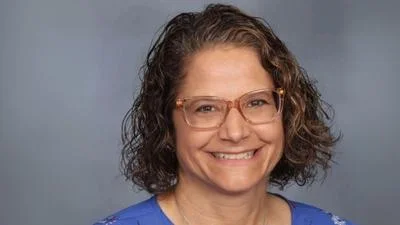Osf St. Elizabeth Hospital issued the following announcement on May 31.
Telehealth is something we can all benefit from, and the state of Illinois needs to move into the current century to expand the possibilities of that care to more than just rural areas.
That was one of the key takeaways during a visit to OSF HealthCare’s Jump Innovation Center in Peoria by Illinois Lieutenant Governor Evelyn Sanguinetti.
Sanguinetti heads Governor Bruce Rauner’s task force on rural affairs and the newly formed Illinois Medicaid Telemedicine Task Force, which was created to improve outcomes and lower healthcare costs through simulation training of medical professionals. It’s been implemented through a collaboration with OSF HealthCare and the University of Illinois College of Medicine Peoria.
"Telehealth is not only a rural issue, it's a large part a rural issue because of the lack of access. But telehealth is something that we could all benefit from throughout the entire state," said Illinois Lt. Governor Evelyn Sanguinetti.
Sanguinetti was given an overview of the work being done through OSF Innovation and Jump Simulation. The work focuses on rural health initiatives, telehealth technology, advances in simulation and innovation, among other areas.
"We’re right in the in the prime location to do this. We're here to help innovate and provide that care to patients that we’re already providing in those rural settings. Maybe patients that are elderly or aging, patients that have multiple co-morbid conditions, patients that don’t necessarily have a lot of money for healthcare and how can we provide them with the best care at the lowest cost," said Suzanne Hinderliter, Vice President ofTelehealth Services for OSF HealthCare.
Sanguinetti hopes to bring ideas on how best to expand access to care from visits such as this to task force members. She and Hinderliter acknowledge the state of Illinois ranks near the bottom of all states – and even other countries – when it comes to providing telehealth services. Both say rules and regulations must change to improve the telehealth environment in Illinois.
"We have not come into the 21st-century with this. You look at healthcare and where it's going and how we do need to do it differently, it's not sustainable the way that we're providing healthcare today at a cost and patient outcomes. There's a lot we can learn from other states, there's a lot we can learn from other countries, there's other countries that do this very well and so those are the kind of things that we actually look at," explains Hinderliter.
"Overtime it's less expensive, I think it's less expensive immediately and I think that the outcomes for Medicaid beneficiaries are very good outcomes. Why? Because they’re not going into the hospital as often and they're being watched more carefully. So that is my take away - it's a positive take away, and we certainly want to bring everything into the 21st-century because that's a major complaint: anything south of I-80 is not only forgotten but I've been told deleted," added Sanguinetti.
Learn more about the work being down through OSF Innovation to transform care in rural communities and beyond.
Original source can be found here.





 Alerts Sign-up
Alerts Sign-up